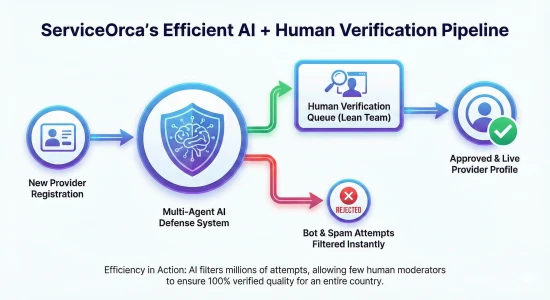Electricians play a crucial role in modern society, ensuring homes, businesses, and industries have safe and reliable electrical systems. If you're interested in a stable and rewarding career, becoming an electrician might be the right path for you. This guide outlines the steps to becoming a certified electrician, from education to licensing and career growth.
Step 1: Understand the Role of an Electrician
Electricians install, maintain, and repair electrical systems in various settings, including residential, commercial, and industrial environments. Their responsibilities include:
-
Reading blueprints and technical diagrams
-
Installing wiring, outlets, and circuit breakers
-
Troubleshooting and repairing electrical malfunctions
-
Adhering to safety codes and regulations
-
Working with clients to ensure electrical needs are met
Step 2: Meet the Basic Requirements
Before starting your journey as an electrician, you must meet certain prerequisites:
-
Education: A high school diploma or GED is typically required.
-
Age Requirement: You must be at least 18 years old.
-
Physical Fitness: The job can be physically demanding, requiring good stamina and hand-eye coordination.
-
Strong Math and Problem-Solving Skills: Electricians work with measurements, calculations, and troubleshooting.
Step 3: Complete an Electrician Training Program
There are multiple ways to gain the necessary training and education:
Vocational Schools & Community Colleges
Many aspiring electricians start by enrolling in a vocational or trade school. These programs cover electrical theory, wiring, circuitry, safety protocols, and the National Electrical Code (NEC). A certificate or associate degree in electrical technology can provide a solid foundation.
Apprenticeship Programs
Most electricians gain hands-on experience through apprenticeships, which typically last 4-5 years. Apprenticeships combine classroom instruction with on-the-job training under the supervision of licensed electricians. You can apply for apprenticeships through:
-
Electrical trade unions (such as the International Brotherhood of Electrical Workers - IBEW)
-
Independent electrical contractor associations
-
Local trade schools and vocational programs
Step 4: Obtain Licensure and Certification
Licensing requirements vary by location, but most states require electricians to pass an exam covering electrical theory, building codes, and safety regulations. You may also need:
-
Journeyman Electrician License: After completing an apprenticeship, you can apply for this license, allowing you to work independently.
-
Master Electrician License: With additional experience, you can take the master electrician exam, qualifying you for supervisory roles and larger projects.
-
Specialized Certifications: Some electricians pursue certifications in renewable energy, fiber optics, or home automation to expand their skill set.
Step 5: Gain Work Experience and Specialize
After obtaining your license, you can start working in various fields:
-
Residential Electrician: Focuses on homes and small buildings.
-
Commercial Electrician: Works on office buildings, retail spaces, and other commercial properties.
-
Industrial Electrician: Installs and maintains electrical systems in factories and large industrial settings.
-
Maintenance Electrician: Ensures electrical systems remain operational through routine maintenance and repairs.
-
Solar and Renewable Energy Electrician: Specializes in solar panel installation and renewable energy systems.
Step 6: Continue Education and Stay Updated
Electrical codes and technology evolve, so continuing education is essential. Attend workshops, take refresher courses, and stay informed about industry advancements. Many electricians also upgrade their qualifications by taking additional certifications in automation, energy efficiency, or smart home systems.
Step 7: Consider Starting Your Own Business
With experience, many electricians start their own electrical contracting businesses. This requires:
-
Business licenses and permits
-
Liability insurance
-
Hiring skilled workers and managing projects
-
Marketing and customer service skills
Conclusion
Becoming an electrician requires dedication, technical knowledge, and hands-on experience. By following the steps outlined above—education, apprenticeship, licensure, and specialization—you can build a successful career in this high-demand field. Whether you work for a company or start your own business, electricians enjoy job security, excellent pay, and opportunities for growth.






